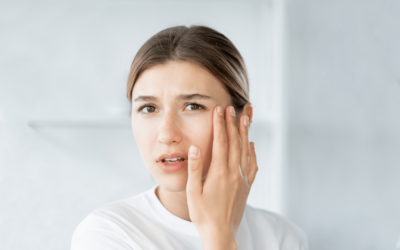As women approach menopause, they often experience various physiological changes, many of which are linked to hormonal fluctuations. One such change is the increased risk of developing dry eye disease during perimenopause. At Lighthouse Vision in Milford, CT, we want to help you understand this connection and how to keep your eyes feeling comfortable.
Understanding perimenopause
Perimenopause is the transitional period leading up to menopause, typically occurring in women between the ages of 40 and 50. This phase brings about significant hormonal changes, especially in estrogen levels, which can lead to a variety of symptoms, including hot flashes, night sweats, mood swings, and changes in menstrual cycles. These hormonal changes can also cause dry eyes.
What is dry eye disease?
Dry eye disease is a common condition that occurs when your tears can’t provide adequate lubrication for your eyes. This can be due to insufficient tear production or poor-quality tears.
Symptoms of dry eye disease can include:
- A stinging, burning, or scratchy sensation in your eyes
- Stringy mucus in or around your eyes
- Increased eye irritation from smoke or wind
- Eye fatigue
- Sensitivity to light
- Difficulty wearing contact lenses
How is dry eye connected to perimenopause?
Estrogen and androgen hormones play a significant role in maintaining healthy tear production and the overall health of the ocular surface. During perimenopause, a drop in estrogen levels can affect the lacrimal glands that produce your tears, leading to a decrease in tear volume and stability. Additionally, hormonal changes can affect the quality of your tears, causing them to evaporate more quickly and leaving your eyes feeling drier.
How to keep your eyes comfortable
If you’re dealing with dry eyes during perimenopause, here are some friendly tips to help:
- Eating foods high in omega-3s, like fish and flaxseeds, can help improve tear quality.
- Drink plenty of water to keep your whole body, including your eyes, hydrated.
- Use a humidifier to add moisture to the air
- Take frequent breaks from screens: every 20 minutes, look away from your screen and stare at something 20 feet away for 20 seconds.
- Wear protective eyewear to shield your eyes from wind and dry air.
Most importantly, make sure to schedule regular eye exams! At Lighthouse Vision, our dry eye specialist in Milford, CT, has extensive experience in diagnosing dry eye and will recommend a treatment plan that works for you. We offer supplements and other dry eye products to help you feel better!
We also provide IPL therapy and radiofrequency treatment to manage dry eye disease due to meibomian gland dysfunction. It’s painless and quick, and you may even see a reduction in the appearance of fine lines and wrinkles in the treated area!
In conclusion
Understanding how perimenopause can affect your eyes is the first step to feeling better. At Lighthouse Vision in Milford, CT, we’re here to support you with personalized care and advice. If you’re experiencing dry eye symptoms, especially during perimenopause, give us a call. We’ll work together to find the best way to keep your eyes comfortable and healthy.
Reach out to Lighthouse Vision today for more info or to schedule an appointment. We’re here to help you see and feel your best!





